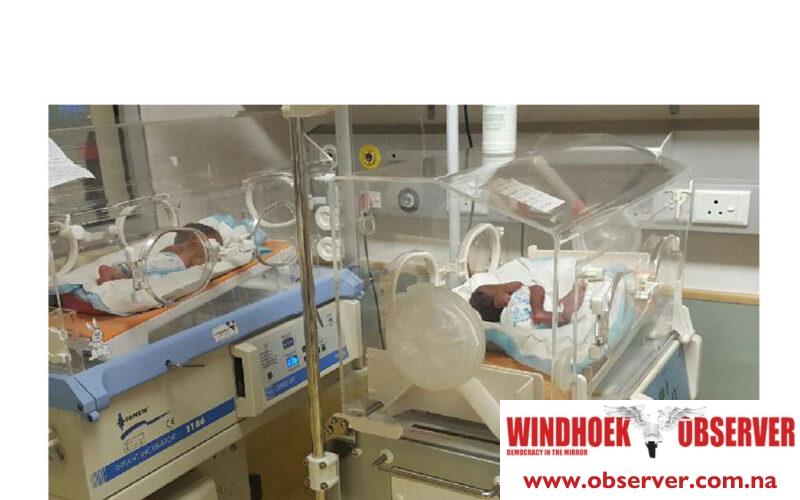Hertta-Maria Amutenja
Doctors and nurses at the Windhoek Central Hospital said some newborn babies, especially premature ones fall sick within the first two days due to infections which are caused by the overcrowding situation at the state hospital.
The hospital’s Neonatal ward is designed to accommodate 30 babies at a time but sometimes it accommodates 64 babies at once, a situation that makes it hard to control the spread of infections.
The doctors said while briefing the Parliament Standing Committee on Gender Equality Social Development and Family Affairs when they visited the hospital this week to assess the status of the facility.
This overcrowding is exacerbating the risk of infections among the neonates, ultimately
Doctors at the facility emphasized that overcrowding significantly compromises infection control protocols, impacting the delicate health of little ones which sometimes leads to fatalities.
Doctor Lorraine Ndjoze, paediatrician at the neonatal ward, told the committee that the predicament of having a single unit catering to the entire nation inevitably resulted in overwhelming demand.
“If the babies pass away most of the time it is due to infections that they picked up because we are overcrowded. The problem with having one unit like this, catering for the whole country is overcrowding. We cannot say no to a patient who is sitting in Keetmanshoop for example who needs equipment that Keetmanshoop does not have or who needs surgery and the surgeons are here, we can’t say no. So we keep accepting patients from everywhere, and when the ward is overcrowded it becomes an infection control problem,” she said.
She further stated that the unavailability of Magnetic Resonance Imaging (MRI) machines within public hospitals has become a concerning issue.
“We are sending so many babies to private institutions to get MRIs done because the government does not have an MRI machine. The amount that the government is spending on private hospitals could add up to get our own,” she suggested.
Last month it was reported that the Ministry of Health and Social Services spent N$10 million to procure MRI services from private hospitals due to the lack of public MRI machines in state hospitals.
This outsourcing arrangement, while providing necessary diagnostics, often leads to delays in patient treatment, underscoring the need for investing in domestic MRI infrastructure.
MRI machines are indispensable medical equipment vital for detailed imaging of internal bodily structures, aiding in the accurate diagnosis and treatment of various medical conditions. Adding to the challenges, the Neonatal Ward also grappling with ventilation issues due to its underground location and limited access points.
The equipment necessary to maintain optimal temperature and support the respiratory needs of the infants generates additional heat, exacerbating the already challenging ventilation situation.
“Because we are underground, there is no ventilation and we only have one entrance. The major problem is the equipment to keep the babies breathing and keeping them warm generates heat which adds to the ventilation problems. However, we are working on it and put in a request this year,” said Ndjoze.




